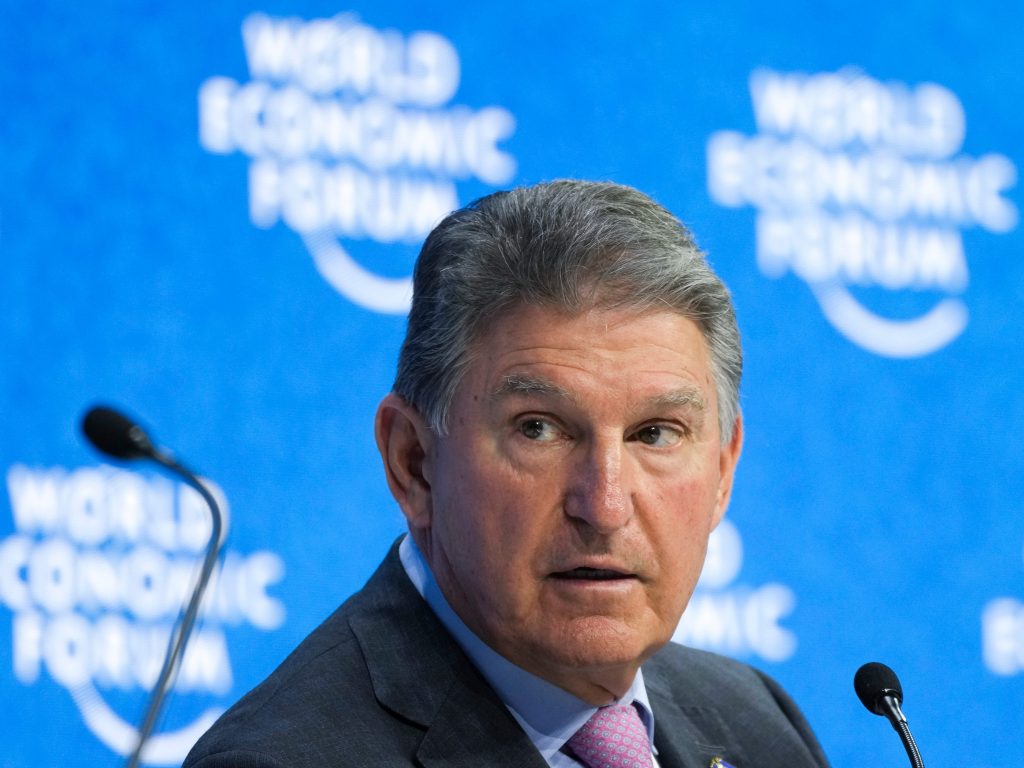- Sen. Manchin and Democratic Majority Leader Chuck Schumer came to a compromise on Biden's Build Back Better agenda.
- Several senators and former Treasury Secretary Larry Summers were instrumental in changing Manchin's mind.
- They eventually convinced Manchin that the agenda would ease inflation, rather than increasing it.
With Senator Joe Manchin's announcement that he reached an agreement on President Joe Biden's proposal on climate, healthcare, and tax programs, it seems like Democrats might finally pass some of the White House's economic agenda.
After killing Build Back Better in January, it seems that the centrist Democratic West Virginia senator had a few crucial conversations that convinced him that his biggest fears — raising the national debt and worsening inflation — would actually be assuaged by some version of the economic agenda he once torpedoed.
"Rather than risking more inflation with trillions in new spending, this bill will cut the inflation taxes Americans are paying, lower the cost of health insurance and prescription drugs, and ensure our country invests in the energy security and climate change solutions we need to remain a global superpower through innovation rather than elimination," the Senate's most conservative Democrat said in a statement on Thursday.
Conversations with other senators and former Treasury Secretary Larry Summers eventually calmed Manchin's inflation fears and convinced him to back a slimmer version of the bill, CNN's Kevin Liptak, Manu Raju, Ella Nilsen and Alex Rogers reported.
The new version of the bill will extend financial assistance for people to purchase health insurance through the Affordable Care Act for three years and enable Medicare to begin negotiating cheaper prescription drug prices. It also includes $370 billion for climate and energy programs and $300 billion to reduce the federal deficit.
It's a much leaner version of the proposal Manchin vetoed — being the threshold-clearing vote in the Senate under the procedural scheme Democrats are trying to use to bypass a Republican filibuster in the evenly divided chamber — which also included provisions for affordable childcare, universal pre-K, and the return of a monthly check program for parents.
'This bill is fighting inflation and it's got a whole set of collateral benefits as well'
Summers has been vocal about inflation increasing the likelihood of a recession for a year now, and he also reached out to Manchin about his concerns, according to CNN. He told Manchin that the deal would help cool rising prices, rather than increasing inflation problems.
He declined to comment to CNN on his conversations with Manchin, but offered more reassurance about the bill's potential to combat inflation.
"This bill is fighting inflation and it's got a whole set of collateral benefits as well," he said.
Several members of the Senate were also key in making Manchin agreeable to a new bill, including Senator John Hickenlooper.
Hickenlooper told reporters that his team requested an analysis of the tax and climate deal from economists at the Wharton School of Business at the University of Pennsylvania in order to confirm the deflationary benefits for Manchin.
Manchin "trusted Wharton, that he'd used that for modeling before," Hickenlooper said. "So, we asked them to model this. We did that and got back modeling that said this is not inflationary in any way, and we sent that to Joe."
Senators Tina Smith, Brian Schatz, and Chris Coons made similar arguments to Manchin, according to Hickenlooper.
"I was listening to every single thing that Joe said he had a problem with, and I was trying to address it," Hickenlooper said. "When he's told me the problem's inflation, and the rest of it he could get to, I took him at his word."
